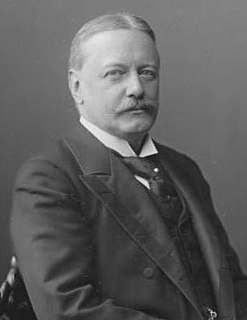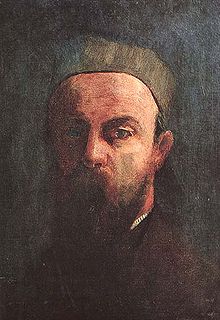A Quote by Bernhard von Bulow
The history of England, who has always dealt most harshly with her vanquished foe in the few European wars in which she has taken part in modern times, gives us Germans an idea of the fate in store for us if defeated.
Related Quotes
My mom would never let us quit. She always taught us the importance of sticking with it, even when times are tough. We didn't just hear her, we watched her. I know what to do because she led the way. She showed us that if you put your mind to it, you can accomplish the world. No matter where you're from and what you're up against.
Our mother always taught us to be in control of our voice and our bodies and our work, and she showed us that through her example. If she conjured up an idea, there was not one element of that idea that she was not going to have her hand in. She was not going to hand that over to someone. And I think it's been an interesting thing to navigate, especially watching you do the same in all aspects of your work: Society labels that a control freak, an obsessive woman, or someone who has an inability to trust her team or to empower other people to do the work, which is completely untrue.
Angela Merkel embodies Germany's 20th century fate. It is not up to me to pass judgment on her place in history, but I believe that she is the chancellor of Germany's reconciliation with Europe. She stands for a Germany for whom globalization has been a success and which accepts its role in foreign and defense policy. I thought the way she dealt with the refugees was courageous. I think she is the chancellor of reconciliation.
There is a form of eminence which does not depend on fate; it is an air which sets us apart and seems to prtend great things; it is the value which we unconsciously attach to ourselves; it is the quality which wins us deference of others; more than birth, position, or ability, it gives us ascendance.
She looks at me out of the side of her uncovered eye. "Chess, Zombie: defending yourself from the move that hasn't happened yet. Does it matter that he doesn't light up through our eyepieces? That he missed us when he could have taken us own? If two possibilities are equally probable but mutually exclusive, which one matters the most? Which one do you bet your life on?
Nearly every morning, a certain woman in our community comes running out of her house with her face white and her overcoat flapping wildly. She cries out, "Emergency, emergency," and one of us runs to her and holds her until her fears are calmed. We know she is making it up; nothing is has really happened to her. But we understand, because there is hardly one of us who has no been moved at some time to do just what she has done, and every time, it has taken all our strength, and even the strength of our friends and families, too, to keep us quiet.
Rhoda comes now, having slipped in while we were not looking. She must have made a tortuous course, taking cover now behind a waiter, now behind some ornamental pillar, so as to put off as long as possible the shock of recognition, so as to be secure for one more moment to rock her petals in her basin. We wake her. We torture her. She dreads us, she despises us, yet she comes cringing to our sides because for al our cruelty there is always some name, some face which sheds a radiance, which lights up her pavements and makes it possible for her to replenish her dreams.
She's always polite and kind, but her words lack the kind of curiosity and excitement you'd normally expect. Her true feelings- assuming such things exist- remain hidden away. Except for when a practical sort of decision has to be made, she never gives her personal opinion about anything. She seldom talks about herself, instead letting others talk, nodding warmly as she listens. But most people start to feel vaguely uneasy when talking with her, as if they suspect they're wasting her time, trampling on her private, graceful, dignified world. And that impression is, for the most part, correct.












































